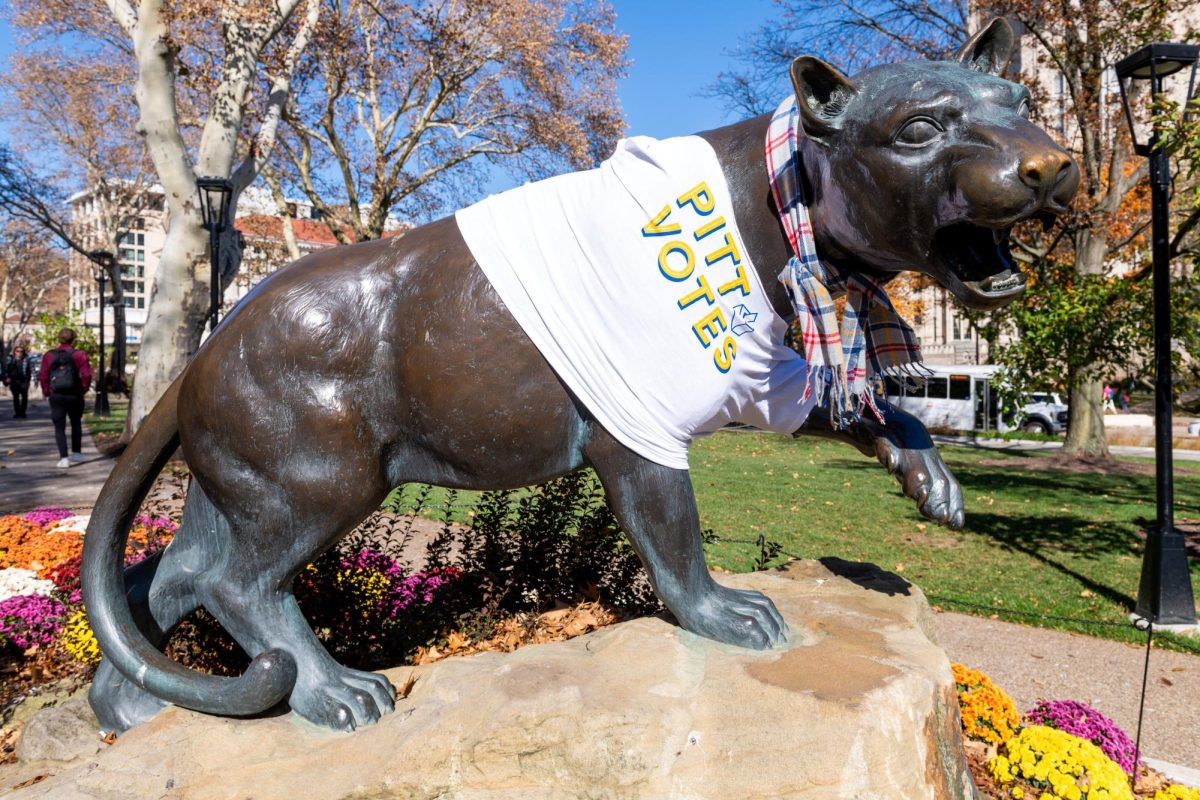In light of the upcoming 2024 presidential election, Student Government Board is working towards implementing asynchronous classes for Election Day, with the exception of labs.
Vice President of Operations Sarah Siddiqui and Board Member Matt Jurich proposed this policy because “students often have very busy schedules” that impede their ability to get to the polls.
“We hope that this proposed policy will benefit students by giving them more flexibility and time to vote,” Siddiqui said.
If the proposal is approved by the Academic Calendar Committee under the Provost’s office, it will take effect during the 2024-2025 academic year.
“This policy is something that many previous Boards in SGB have worked on in the past, and it’s something that we are very hopeful will be in place for the next academic year,” Siddiqui said.
Aaryn Mathias, a junior neuroscience major, votes in person on campus in Posvar Hall and feels this policy will benefit every student.
“I think it would cut down on travel time,” Mathias said. “For me personally, it’s not super bad just because mine is on campus, but if your polling place is off campus, it might be a little harder. I think it would help anyway — I could do my classwork in Posvar or somewhere on campus and then go vote pretty easily.”
Derek Haeussler, a sophomore political science major, votes in every election and is involved with local politics. He feels this policy will allow students to engage with local politics. Haeussler hopes this policy will allow him to spend actual Election Days working as a committeeman for local politicians.
“I believe asynchronous learning on Election Day could definitely help my political activities,” Haeussler said. “More time is free for me to do the things I need or want to do.”
Siddiqui is unsure how the policy will look in years without presidential elections, but hopes to take student feedback into consideration.
“Since this proposal is brand new and in very early stages, we are unsure of the future of the policy,” Siddiqui said. “So far, we’ve received really positive support from students on this policy. We’ve also been really fortunate to work with administrators this year who have been very supportive of this initiative.”
Mathias said in his experience, equal amounts of his peers vote by mail and in person.
“It kind of depends — my friends that are from the Philly area vote by mail because they are still registered at home,” Mathias said. “But some of my friends that switched their registration to Pittsburgh vote in person just because their addresses are mostly near campus. If I had to vote by mail back home, it would be a little bit harder, just because getting a ballot and then sending it to the mail — that deters people.”
Haeussler feels that voter turnout among college students is “somewhat lacking.”
“I think it’s for lack of knowledge, education, enthusiasm and no time to vote,” Haeussler said. “The ordinary Pitt student marginally pays attention to elections when they roll around, but the turnout in general seems to be increasing steadily since 2020.”
According to Pitt Votes, Pennsylvania was ranked number one on the Youth Electoral Significance Index for the 2022 midterms. In Pennsylvania, 69% of youth are registered to vote, which is above the national average.
Mathias believes every vote counts, especially in swing states like Pennsylvania.
“I think it’s important no matter which way you go or which side you vote for,” Mathias said. “So if you want it to go your way, definitely vote because every vote does count in swing states.”
Siddiqui hopes that this policy makes it easier for students to vote and use their collective voice.
“Students’ perspectives are important, and voting in elections gives students the opportunity to have their collective voice heard,” Siddiqui said. “It’s important that class schedules don’t deter students from having the time and opportunity to vote in elections.”


